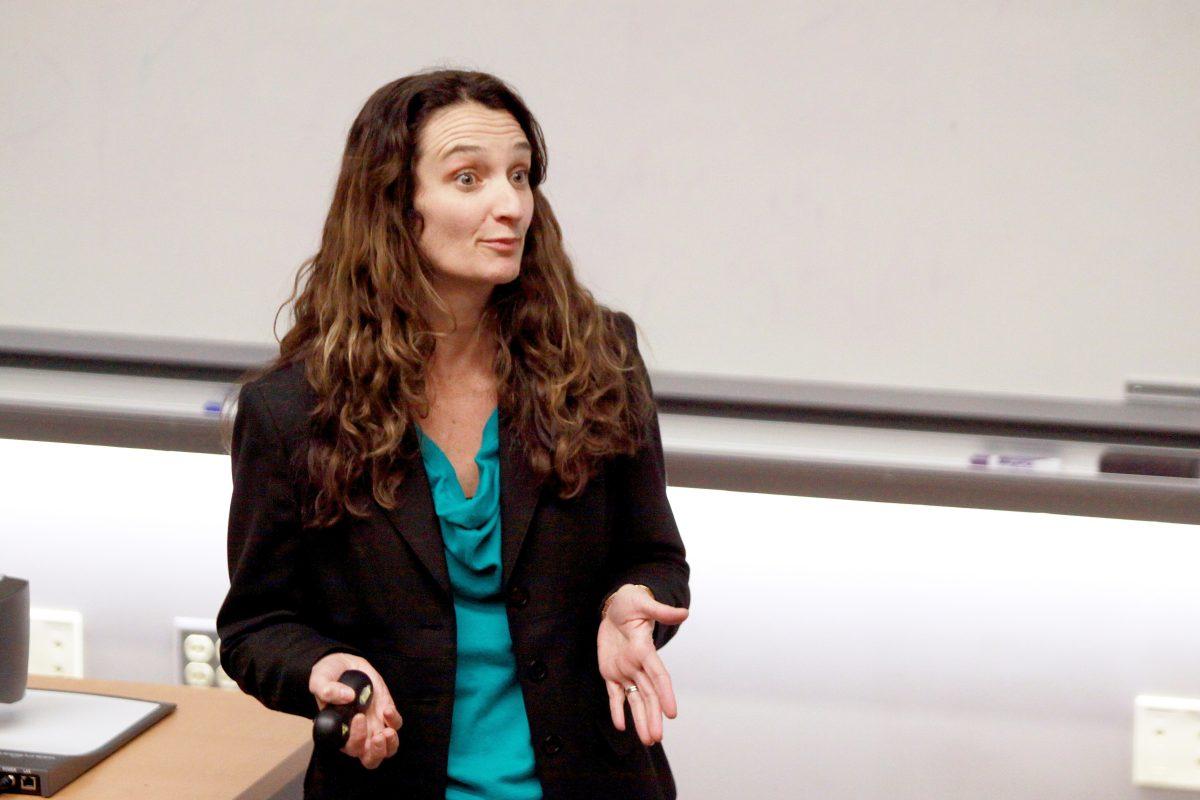Faculty members of the history department spoke about the discrimination that students have faced in public schools throughout North Carolina’s history.
More than 100 people attended the event.
David Zonderman, a history professor and associate department head, spoke first about the importance of education in a democratic society.
“You don’t want a government run by the rabble, who only vote on emotion and don’t think about what they are doing,” Zonderman said.
Zonderman also explained that decades of social science research showed that little or no education resulted in higher tendencies to commit crime, which comes at a high cost.
“Smart states invest in everything from Pre-K to community colleges and universities,” Zonderman said. “Studies show that for every dollar we invest in early education, we save 8 dollars down the road.”
Susanna Lee, an associate professor in history, spoke about past educational history in the South.
“Public schools were thought of as a means that would undermine the racial hierarchy in the antebellum south,” Lee said.
For decades, reformers in favor of public education and southern elites opposed to public schools battled back and forth, with reformers establishing school systems only to have them dismantled later, Lee said.
“Once former confederates dismantled what was set up during the reconstruction, illiteracy rates among the whites were double the national rates,” Lee said, “with illiteracy rates among whites at 25 percent and 70 percent among African Americans.”
Terror campaigns were not uncommon during that time period.
“You have schools that were burned down, children that were shot at, teachers that were murdered,” Lee said.
Katherine Mellen Charron, an associate professor in history, spoke about more recent history in Charlotte, North Carolina.
Charlotte at first struggled with integration, coming up with “freedom of choice” laws.
“This freedom of choice allowed white students to transfer out of any school that had been desegregated but didn’t allow black students to transfer to white schools,” Charron said.
It wasn’t until the 1970’s that Charlotte was fully integrated, a result of both white and African American parents coming together, pressuring the city to change.
“I think the choices that the citizens of Charlotte made are a significant part of our state’s history of which we can be proud,” Charron said.
The last speaker, Meghan Manfra from the College of Education, discussed standardized tests and how they affect public perception.
Manfra pointed out an interesting study, which she demonstrated by asking people to rate their schools and then rate American education. Overall, attendees at the event rated American school education much lower than public schools.
“Year after year, parents give their students’ schools an A or a B grade but give the national American education a C grade,” Manfra said.
Manfra explained that this was a result of SAT scores declining, partially due to the baby boom and social factors such as economic status.
This resulted in public views of education changing from positive to negative and contributing to the passage of the No Child Left Behind Act, which puts a lot of heavy weight on high-stakes standardized tests.
“This is probably one of the biggest pieces of legislation that affected your education,” Manfra said.
Recently, North Carolina had passed an act called Read to Achieve, which required third grade students to take a reading test in order to graduate.
“Students in third grade have to take a series of tests, some having to take 23 tests a year,” Manfra said. “The spirit of this law is that if you can’t read in the third grade, then the prognosis for future school success is pretty dim.”








